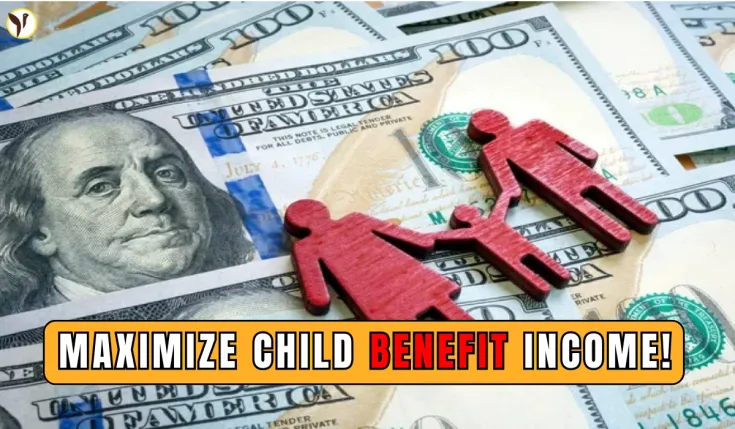Somebig news came in April 2025 about Child Benefit in the UK. The government decided to update how it works, and honestly, it’s a pretty good step for a lot of families—especially those earning a bit more but still trying to keep up with rising costs. The biggest change? The income limit for the High Income Child Benefit Charge (HICBC) just went up. Before, if one person in a household made more than £50,000, they’d start losing some of their Child Benefit. Now, that limit is £60,000. And you only lose all of it once income hits £80,000. That’s a much-needed update for middle-income families.
What Is the High Income Child Benefit Charge (HICBC)?
This part can be a little confusing, but here’s how it works. If you or your partner earns over a certain amount, the government starts taking back some—or even all—of your Child Benefit through a tax called the High Income Child Benefit Charge.
Here’s the deal now:
-
If you make more than £60,000, you’ll start repaying part of your benefit.
-
For every extra £100 you earn over £60,000, you pay back 1% of the Child Benefit.
-
Once you’re making £80,000 or more, you’re basically repaying the whole thing.
It’s still based on individual income, which some people say is unfair—like if only one parent works and earns a bit more, they get hit harder than dual-income homes with the same total income. But that might change soon.
Tips for Reducing How Much You Pay Back
If you’re earning a bit over the new limit and don’t want to lose all your Child Benefit, there are some things you can do to bring down your “adjusted net income.” Sounds fancy, but it just means your income after certain deductions.
Here are some smart options:
-
Put more into your pension – This lowers your taxable income. One example showed that if someone earning £75,000 upped their pension contributions, they could keep almost £2,000 a year in Child Benefit and save more for retirement. Win-win.
-
Make donations through Gift Aid – Giving to charity this way also reduces your adjusted income.
-
Use salary sacrifice – If your employer offers things like childcare vouchers or a cycle-to-work scheme, these can lower your salary for tax purposes.
Basically, these tricks help you drop below that £60,000 line—or at least reduce how much Child Benefit you have to give back.
Why You Should Still Claim Child Benefit (Even If You Don’t Get the Money)
A lot of people stop claiming Child Benefit once they know they won’t get the actual payment because of the income limits. But here’s something most folks don’t realize: you should still claim it, even if you tick the box to stop the payments.
Why? Because:
-
Your child will automatically get a National Insurance number when they turn 16.
-
You get National Insurance credits, which help you qualify for a full State Pension later on.
If you skip claiming it altogether, you could miss out on both of those. And honestly, sorting it out later is way more complicated.
What's Coming Next?
There’s another big change coming soon. Right now, the government looks at individual income when deciding who has to pay the HICBC. But starting April 2026, they plan to switch to a household income system. That might make things a bit fairer, especially for families where just one person is earning above the limit while the other stays at home.
We’ll have to wait and see how that plays out, but it’s something to keep on your radar.
Final Thoughts
So yeah, the 2025 update to Child Benefit rules might not seem like a huge deal at first glance, but it could actually help a lot of families keep more of their money. If you’re earning somewhere between £60,000 and £80,000, this is your chance to look into ways to lower your adjusted income and hold onto more of that benefit. Even if you’re over the limit, don’t ignore it—claiming can still help with future pension stuff and your child’s paperwork. It’s worth taking a few minutes to check where you stand. Honestly, with a little planning, it could make a real difference.







